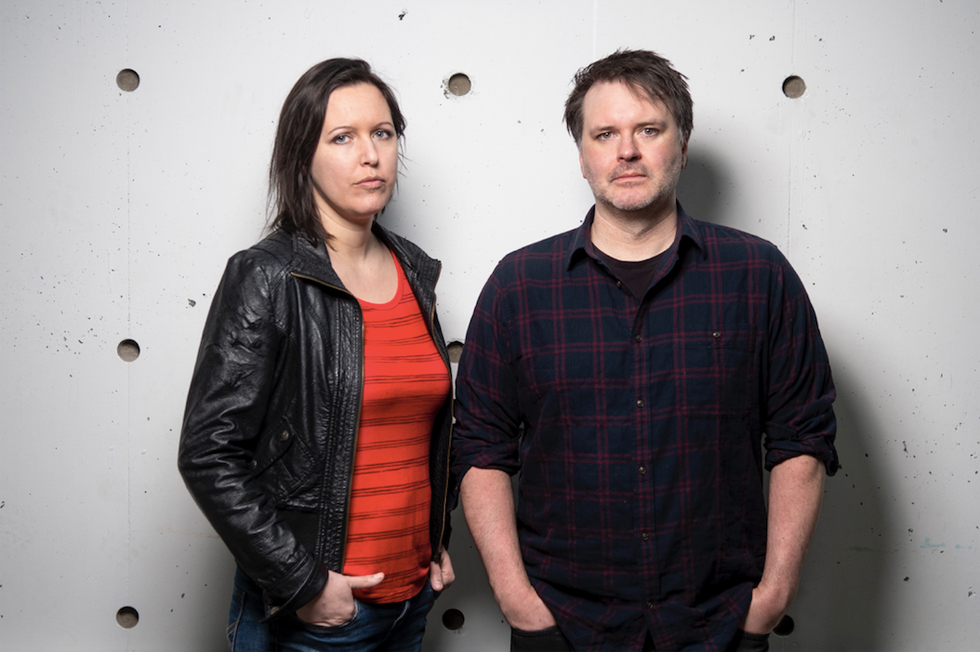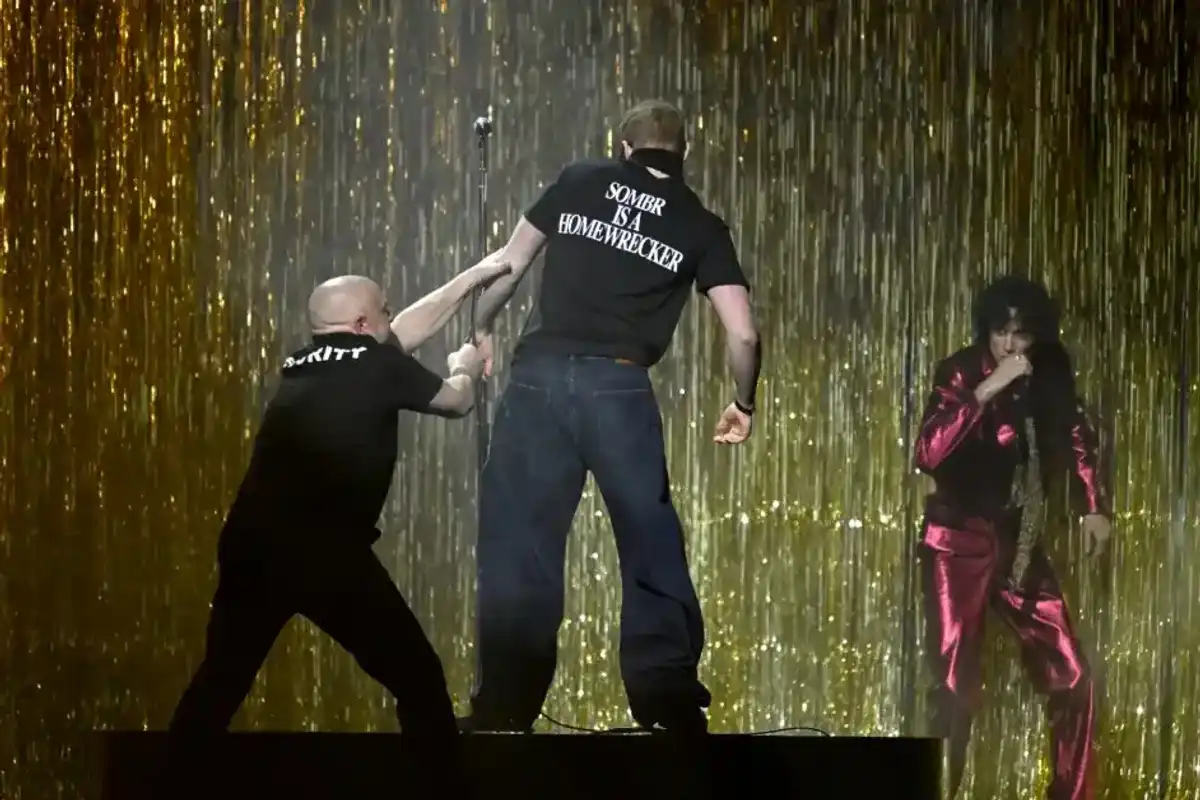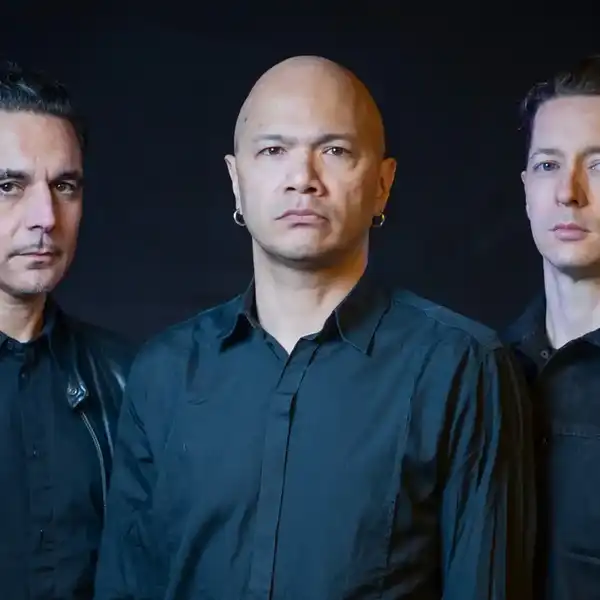The COVID-19 Chronicles: Paragon Cause's Jay Bonaparte
One half of the Ottawa-based alt-rock/electronic duo, he is also a Head and Neck (ENT) surgeon in the frontlines of the Coronavirus crisis. Here he offers a unique perspective on the pandemic, and the effect it is having on the group’s career.

By Jason Schneider
For Jay Bonaparte, one half of the Ottawa-based alt-rock/electronic duo Paragon Cause, the COVID-19 pandemic has forced him into a position he couldn’t have conceived of mere months ago. Not only has it affected plans for the release of Paragon Cause’s full-length debut album, What We Started, on April 17, but it’s also placed Bonaparte—a Head and Neck (ENT) surgeon—directly on the front lines.
Reports from Italy, China and Iran have revealed ENT surgeons are among the most at-risk for infection when it comes to medical professionals. Needless to say, it’s also put a tremendous strain on his partner in both music and life, Michelle Opthof, who is grappling with her own challenges as a teacher.
Nonetheless, the pair has been trying to balance their work and music with online events that give Dr. Bonaparte the opportunity to directly answer questions about the virus and share his experiences, while at the same time allowing them to showcase the new album, produced by Sune Rose Wagner of The Raveonettes.
In what could be interpreted as a dark coincidence, they released the first single, Lost Cause, on March 20. But given what’s transpired since then, Bonaparte is doing everything he can not to make this pandemic a lost cause, and get back to a place where he and Opthof can concentrate on music again.
We’re grateful that he was able to take some time to speak to us. For more about the band, go to paragoncause.com.
Your debut album What We Started is scheduled for release on April 17. How has the pandemic affected your plans for the launch?
The biggest issue is live performances. Rightfully so, all live shows were cancelled. We have some great relationships with many live venues in Ottawa and Ontario, so we feel bad these places had to close. It’s bigger than just us in this situation. I must admit, other businesses like Precision Pressing, which is producing our vinyl and CDs, as well as music curators, artists, radio and fans, in general, have been incredible. People are really focusing on the things they love, and one big thing is music. In the end, we haven’t really been affected by too much given the current trend in online music distribution.
You have the additional challenge of being a doctor on the front lines. How have you been coping with that from a personal standpoint?
Well, it’s all about friends, family and fun. I really keep my work life and artistic life separate, but now I don’t know if I can. It’s weird; there are some very positive things about this whole situation. We have written a lot of songs, taken photographs, done paintings—both Michelle and I have always been involved in a variety of artistic endeavours, and this provides the opportunity to re-explore these things. It’s surreal, to be honest.
I think when you work in the hospital, you are used to a certain amount of chaos, so right now, it’s not affecting me too much but I know what can happen. I have a background in statistics and epidemiology, so I understand and appreciate the risk of this. I think what bothers me the most is the misinformation on Facebook. The video for our recent single, Lost Cause, deals with sexual violence and abuse. It is not graphic or exploitive in any way, but Facebook keeps blocking it. Yet, they have no issues with all the false information surrounding COVID. That’s really disturbing.
What are some things you might be planning, or have done already, as a way to engage with your audience?
We always try to be innovative. We are not afraid to fail or make a mistake, because we learn that way. A lot of people complain about the current situation in terms of online distribution and PR, but we need to adapt. For us, we are doing a lot of research into streaming performances. A lot of people are doing this, but to be honest, the sound is terrible. That needs to be solved. We have been using some online programs that assist with this. We are very particular about our sound, and we can get CD-quality sound into Facebook/YouTube/Instagram now. But the big issue, is not having a soundperson! If you are halfway through a song and the guitar is too loud, you’re screwed.
We are also recording some new music and are likely going to use this to raise some money. I think you need to just engage people. I also decided to finally let the cat out of the bag and talk about the virus from a medical perspective as well. I just don’t feel comfortable hiding that anymore.
Do you think the response from governments has been sufficient, and if not, what more would you like to see?
That’s a loaded question! From a professional point of view, I think they are doing the best they can with what we have. I love our system in Canada, but this virus highlights a very key weakness of it. Our system is designed to save money and only use what is needed. That is based on the past and what we expect the health of Canadians to look like. So Provincial and Federal governments plan for that and distribute money. At the best of times, our system is at 100 percent capacity. So, what do we do if we need a 900 percent increase? We don’t have the equipment or personnel. It’s the weakness of our system.
I do think in Canada we are ahead of this, again, as much as we should be. The WHO recommends more testing and that is our major weakness now. We need to test more and test quickly. It needs to happen, but again, the whole world wants this. It’s not easy. People need to realize this is a worldwide issue and everyone is fighting for the same resources. However, in my mind, what I would like to see is a global approach. I think most countries would do this, but I am not sure the current U.S. administration would be interested. That scares me the most and could ruin it for the world.
What do you believe the overall impact of the pandemic will have on the music business once things start returning to normal?
I think there are a few good things, along with risks. I think Facebook is seeing dollar signs. They want more videos and all of us playing live music online makes them happy. It costs them nothing and sometimes they make money off it as we can use targeted ads as opposed to posters. I worry a lot about live venues. I think it’s going to be a big problem, both from a financial point of view during the isolation and afterwards when people may not have the cash to purchase music. People are worried about their disposable income, that’s going to be an issue for all businesses.
For music in general, I’m hoping we come out of this like musicians do for all major events: Create great, risk-taking, powerful music. Music needs a new movement, as occurred in past decades. It’s been so stale, something needs to happen to make the big labels embrace something new and start to promote creativity again.

















